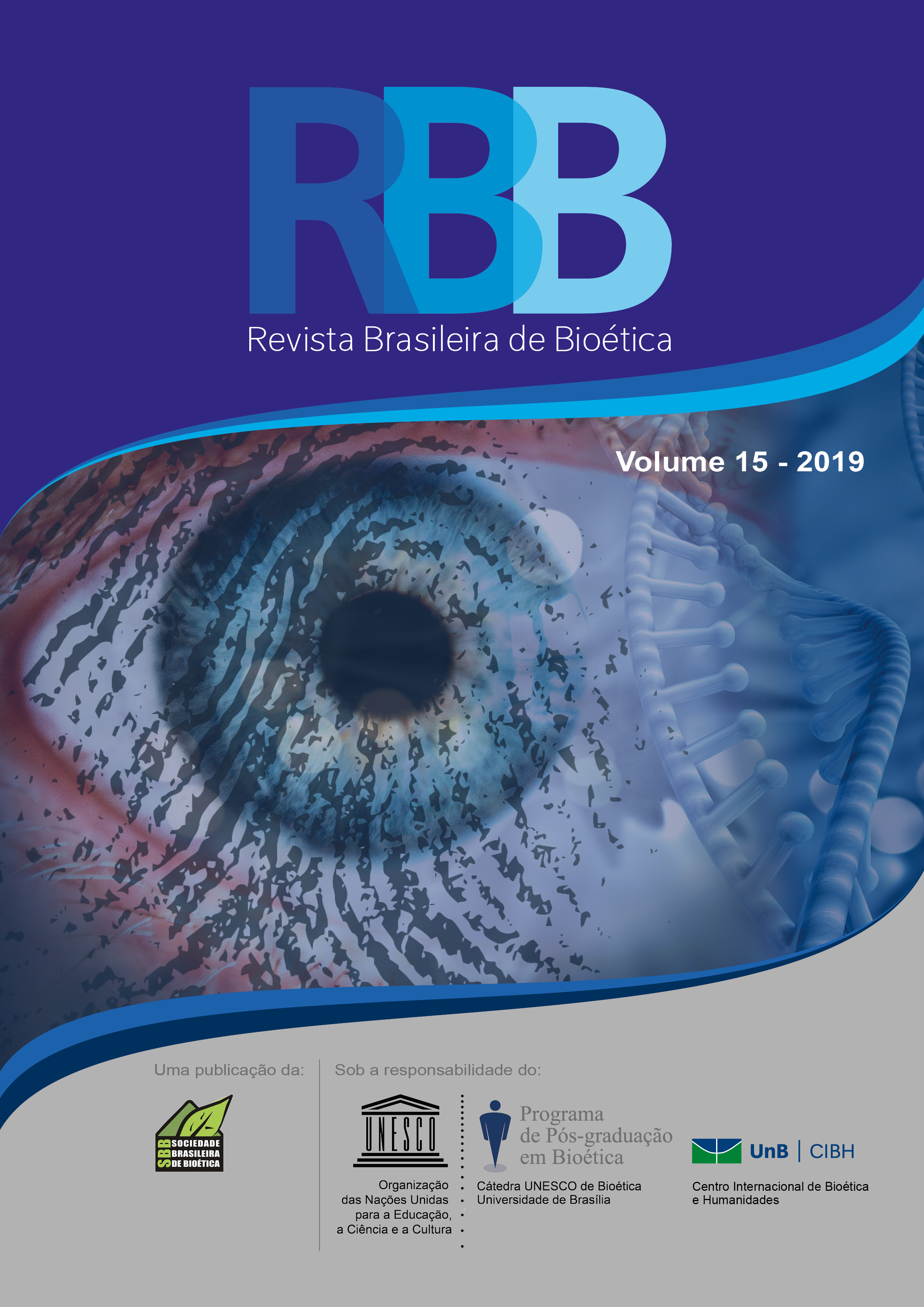Intervenciones pedagógicas de los Comités de Bioética en contextos clínicos: hacia la apertura de procesos deliberativos en una Unidad de Cuidados intensivos Neonatales
DOI:
https://doi.org/10.26512/rbb.v15.2019.27372Keywords:
Pedagogical intervention - Bioethics - Deliberative method - Communication - FutilityAbstract
From the responsibility of the Bioethics Committees to provide training in the interior of health services, pedagogical interventions were carried out in the neonatal intensive care unit of a public hospital in Mar del Plata, Argentina. They originated in the detection of their needs and were based on the deliberative method, through playful workshops of reflection-action. They aimed to facilitate the joint reflection of the health team on the causes of fragmented and uncritical work processes for their transformation into participatory processes that favor consensual decisions. In conclusion, the need to generate deliberative spaces to share opinions and emotions and to channel the moral stress produced was evidenced. The health team was able to identify bioethical dilemmas, their impact on personal and professional individuality and their impact on patients, and could associate causality between the absence of deliberative processes and the establishment of futile treatments.
Downloads
References
Altimier, L, Phillips R. The neonatal Integrative Develpmental Care Model: Advanced Clinical Applications of the Seven Core Measures for Neuroprotective Family-centered Developmental Care.NewbornInfantNurs Rev. 2016: 230-244.
Arnaez J, Tejedor JC, Caserío S. et al. La bioética al final de la vida en neonatología: cuestiones no resueltas. AnPediatr (Barc).2017:87(6): 356.e1-356.e12.
Balanesi, M. Aspectos éticos en el cuidado intensivo neonatal. Comentario de artículo. Revista de Enfermería Neonatal FUNDASAMIN. Diciembre 2018: 39-43.
Castoriadis, C, El imaginario social instituyente, Biblioteca Omegalfa, Paris 1997.
Congreso de la Nación Argentina. Ley 25929, de Parto Humanizado, 2004. Poder Ejecutivo de la Nación. Decreto reglamentario 2035/2015.
Freire, P. Pedagogía del oprimido; S XXI editores; 32° edición; Bs As; Argentina; Trad. Mellado, Jorge; 1985.
Prentice T, Gillian J, Davis PG, Javier A. The use and misuse of moral distress in neonatology. Semin Fetal Neonatal Med 2018, 23 (1): 39-43
Rovere M. Planificación Estratégica de RRHH en Salud. PALTEX/OPS editor, Washington: OPS; 1993.
Spinelli, H. Las dimensiones del campo de salud en la Argentina. En Salud Colectiva. Buenos Aires, 6 (3): Septiembre-diciembre. 2010.
UNESCO, Declaración Universal sobre Bioética y Derechos Humanos, artículos 19 incisosb y d, artículo 23 2005. Disponible en: http://portal.unesco.org/es/ev.php-URL_ID=31058&URL_DO=DO_TOPIC&URL_SECTION=201.html.
Vidal S. Los Comités Hospitalarios de Bioética (Introducción a la Bioética Institucional). Oficina Regional de Ciencia de la UNESCO para América Latina y el Caribe (UNESCO-Mon tevideo). Programa de base de estudios sobre bioética ”“ Parte 1: Programa temático. Programa de educación en ética ”“Módulo III. Unidad 4. Cohorte 2016.
Vidal S. M. Introducción a la Bioética Institucional: Los Comités Hospitalarios de Bioética. En Garay, O. E. (coord.) Bioética en Medicina. Ed Ad-Hoc, Bs As, 2008: 403-439.
Vidal, S. Nuevas y viejas preguntas en la educación en bioética. En La educación en Bioética en América Latina y el Caribe: experiencias realizadas y desafíos futuros. Organización de las Naciones Unidas para la Ciencia y la Cultura. Oficina Regional de Ciencias para América Latina y el Caribe. Programa Regional de Bioética y Etica de la Ciencia, UNESCO. 2012: 15-36.Bioética, Red. Programa de Educación Permanente en Bioética. 2012.
Downloads
Published
How to Cite
Issue
Section
License
Copyright (c) 2020 Revista Brasileira de Bioética

This work is licensed under a Creative Commons Attribution-NonCommercial-ShareAlike 4.0 International License.



